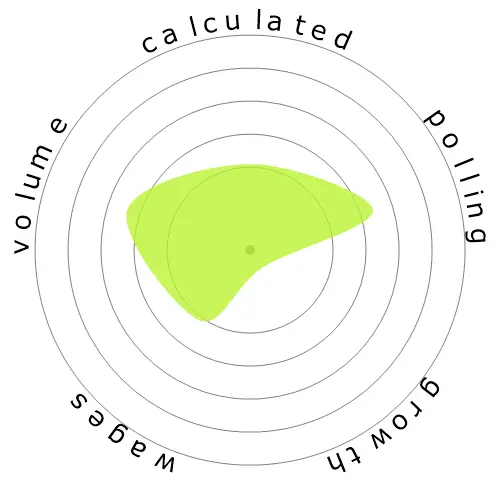Water and Wastewater Treatment Plant and System Operators




People also viewed
Calculated automation risk
Moderate Risk (41-60%): Occupations with a moderate risk of automation usually involve routine tasks but still require some human judgment and interaction.
More information on what this score is, and how it is calculated is available here.
User poll
Our visitors have voted there's a low chance this occupation will be automated. However, the automation risk level we have generated suggests a higher chance of automation: 59% chance of automation.
What do you think the risk of automation is?
What is the likelihood that Water and Wastewater Treatment Plant and System Operators will be replaced by robots or artificial intelligence within the next 20 years?
Sentiment
The following graph is included wherever there is a substantial amount of votes to render meaningful data. These visual representations display user poll results over time, providing a significant indication of sentiment trends.
Sentiment over time (yearly)
Growth
The number of 'Water and Wastewater Treatment Plant and System Operators' job openings is expected to decline 6.0% by 2033
Total employment, and estimated job openings
Updated projections are due 09-2025.
Wages
In 2023, the median annual wage for 'Water and Wastewater Treatment Plant and System Operators' was $54,890, or $26 per hour
'Water and Wastewater Treatment Plant and System Operators' were paid 14.2% higher than the national median wage, which stood at $48,060
Wages over time
Volume
As of 2023 there were 120,710 people employed as 'Water and Wastewater Treatment Plant and System Operators' within the United States.
This represents around 0.08% of the employed workforce across the country
Put another way, around 1 in 1 thousand people are employed as 'Water and Wastewater Treatment Plant and System Operators'.
Job description
Operate or control an entire process or system of machines, often through the use of control boards, to transfer or treat water or wastewater.
SOC Code: 51-8031.00


Comments
The risk involved with automating these specific jobs is too high, and the cost too great to cover all cases and mitigate all the risks, meaning these jobs should be safe for the future. Paradoxically, despite their absurd importance, funding seems to always get leaner every year.
Although many facets could be automated, integrating these automated systems into the majority of dilapidated infrastructure would be too cumbersome to be a real issue.
I can see complications resulting from system upgrades or increasing efficiency by reducing workers and having people take on more responsibilities with more complex systems, but it will likely never be 100% automated because of our bias..
Leave a reply about this occupation